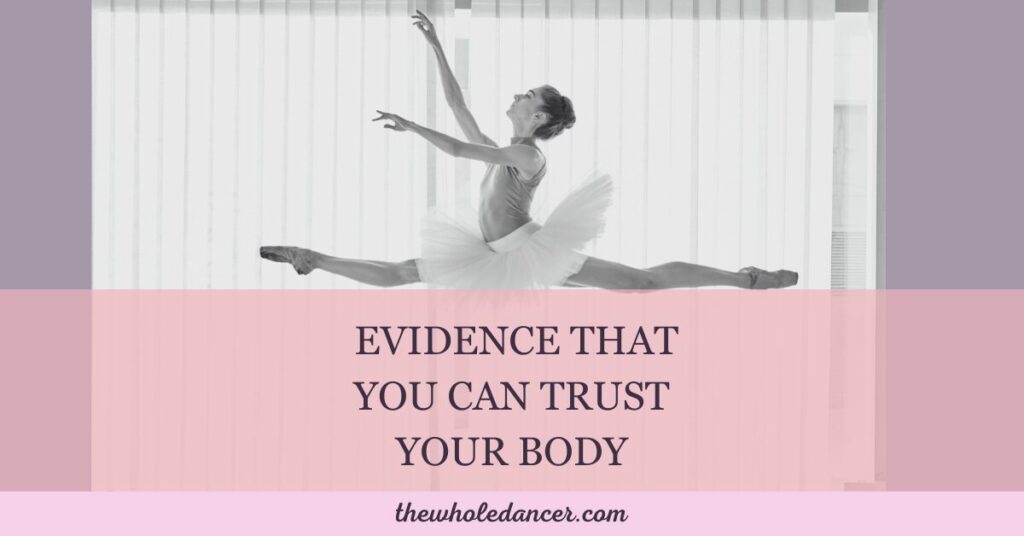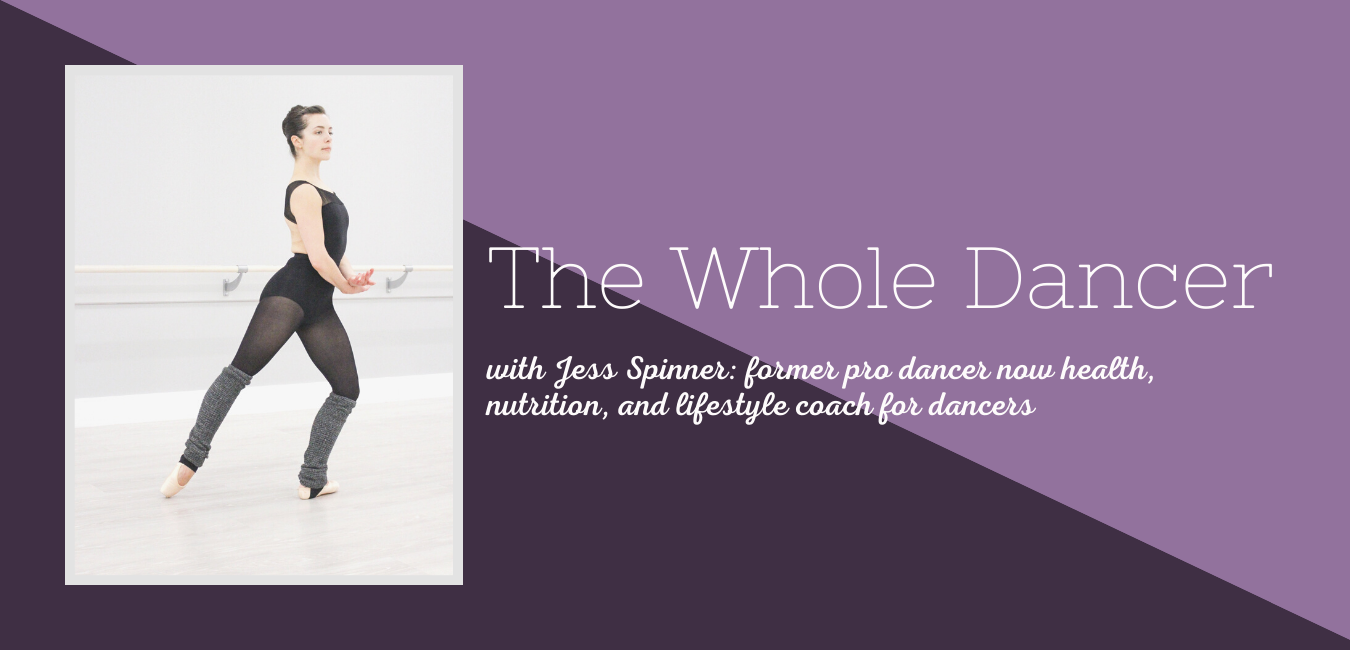Our bodies are working for us. Just like you should trust your body, your body wants to trust you and the decisions you’re making. Building trust in your body is a process for anyone, but for a dancer, it’s perhaps an even more essential process. It will help you dance better, feel better, and have more confidence.
The best way to build trust is to gather evidence that your body is worth trusting. Dancers tend to tell themselves the opposite: “I can’t trust my body.” You might have convinced yourself that if you deviate from some controlled eating plan, your body will change drastically overnight or within a couple of weeks.
What’s true is that your body is a very efficient machine. The muscle tone that dance develops helps your body to run even more efficiently, and even in times of rest or lower activity, your basal metabolic rate (or resting metabolic rate) is likely much higher than you assume.

To support your body to run efficiently, support your well-being.
There are some very basic ways you can support your body to run at its peak —things that unfortunately a lot of dancers neglect.
First, eat enough. If you’re not sure what’s “enough,” check out this post. To eat enough you should be eating consistently and proactively. Don’t let more than 2–4 (max 5) hours pass between meals or snacks.
Rest and recovery is also going to support your body to run more efficiently. When you rest, your body can manage stress and then put its effort into aiding metabolism. It’s also essential to not overwork or over-exercise. When your sleep is compromised, your metabolism suffers.
It takes a lot to change your body.
I remember worrying that I’d experience relatively instant weight gain if I wasn’t dancing 6–8 hours a day. I imagined myself expanding to a much larger version of myself…one that was even more undesirable than the body I was in (based on my own self-judgment and perspective at that time).
At that time I was at a weight that was already very low, but my early experiences with body image feedback led me to believe I could never be small enough. The reality that I only began to trust once I stopped dancing is that with a balanced approach to food, very little will change physically even if you stop exercising altogether for a period of time.
When I stopped dancing, at first I was quite active but then I went through a period of time where I didn’t do any organized exercise. I walked a lot, but that was it. I was finally in a really positive time in my life, and my relationship to food was better than it had been for over a decade.
Eating was easy, I wasn’t overthinking it, and I wasn’t stressing about my lack of exercise.
You know what happened to my body and weight? Nothing.
It stayed pretty much the same. It’s likely my body composition changed…you’re not going to maintain high muscle mass without organized exercise (unless you’re genetically inclined), but otherwise nothing drastic shifted.
If your life or lifestyle changes, some change is normal.
The most important factor that supported weight maintenance was my attention to my overall well-being. I was going through my first health coaching program and was committed to caring for myself the way I would eventually encourage my clients to care for themselves.
If you go from dancing 6 days a week to not at all, some change should be expected. You may gain some weight. Your body composition will likely shift. If you lead with self-care, the changes are likely to be subtle and more noticeable to you than anyone else. Body change isn’t bad and for some it’s healthy and needed.
If your body changes drastically…
If food consumption changes drastically, your body can change quickly. But it will not be a healthy transformation, and as a dancer, it’s possible you can severely injure yourself if you take extreme measures.
However, if your food choices have stayed relatively stable, and exercise hasn’t changed significantly but your body changes drastically, it’s time to see a doctor. A significant physical change may be a symptom of a number of serious health issues.
How to start working with your body and building trust.
Imagine you’re your own best friend. How would you care for that person? What fuel would you provide them with? What protective measure would you take to ensure they’re at their optimal health?
The care we’re willing to give to others often goes above and beyond what we’re willing to do for ourselves. That’s something worth rethinking. If you’re unsure where to start, start here…
Schedule a free coaching consultation to learn how I can support you to prioritize your well-being so you can start trusting your body and performing at your peak.
Resources:
